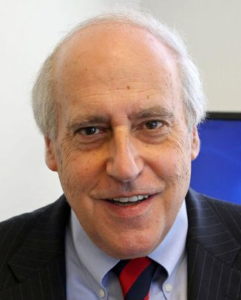More than 50 years ago, Neil Young released the poetic, “After the Gold Rush,” which included the line “Look at mother nature on the run in the 1970’s.”
More than five decades later, mother nature is still on the run, trying to protect herself from the devastating effects of climate change and ensure that she can continue to nourish the human population.
When considering the events of the past two years and counting; a global pandemic, economic uncertainty, war and humanitarian crises, inflation, it may seem appropriate to put climate change on the backburner.
This cannot happen. Despite the mounting challenges confronting us, we cannot ignore climate change’s threat to our environment.
Climate change is threatening our ability to grow nutritious food, and global food and nutritional security could become climate change’s first casualty.
In my home state of Kansas, farmers have been consummate stewards of the land, implementing practices to reduce emissions while adapting to a changing climate. Right now, these farmers are facing a triple threat of drought, record input costs and extreme volatility in the market. Many of these farmers also struggle to maintain a living wage and secure their own food security.
The onus to address climate change cannot fall on farmers alone. A problem of this scale requires a solution of equal magnitude. The solution is collaboration and collectively harnessing the agriculture sector to reduce emissions.
Agriculture contributes roughly 13 percent of global greenhouse gas (GHG) emissions. Ultimately, though, it is the only sector with the potential to be net negative for GHG emissions.
Enter AgMission™, a global partnership founded by the Foundation for Food & Agriculture Research (FFAR), U.S. Farmers & Ranchers in Action (USFRA) and the World Farmers Organisation (WFO). AgMission mobilizes farmers, ranchers, scientists, data providers, stakeholders and funders to develop, implement and accelerate climate-smart farming practices at scales previously unimagined.
Soil and farmlands already store 100 times more carbon than is emitted in a year. Through climate-smart agriculture practices, farmers can optimize for growing crops, improve resiliency, minimize fertilizers and other inputs, improve water use and quality and enhance soil health, all the while storing carbon. Climate-smart agriculture practices can not only protect food security now, but also address the threat of climate change for future generations.
The partnership has already garnered support from leading food chains, food manufacturers and environmental organizations.
Before the formation of AgMission, no entity specifically focused on coordinating and calibrating comprehensive farm-level data or funding research gaps to empower farmers and ranchers to reduce GHG emissions while securing proper livelihoods.
Food is a bond that connects us all as Americans. And yet, in the abundance created by our farmers and ranchers, some may take the food supply chain for granted. With the climate crisis, there are no longer any guarantees.
We can no longer outrun climate change. The time for action is now.
Farmers have a special relationship with hope. It’s in their DNA. Sometimes it’s the only thing that keeps them going. For decades, they have found new ways to be sustainable - environmentally, economically and ethically.
Desmond Tutu once said, “Hope is being able to see that there is light despite all of the darkness.”
Farmers know this all too well.
Dan Glickman served as the US Secretary of Agriculture in the Clinton administration. After serving 18 years in the US House of Representatives representing the 4th Congressional District of Kansas. Now, he is a senior counselor and chair of the International Advisory Board at APCO Worldwide; senior advisor to the US Global Leadership Coalition; and a long-time board member and now lead director of the Chicago Mercantile Exchange (CME Group). In addition to his work at the Council, he serves as an adjunct professor at Tufts University's Friedman School of Nutrition Science and Policy in Boston; a senior fellow at the Bipartisan Policy Center; and a strategic advisor and counselor at The Russell Group.
For more opinions and ag news, visit www.Agri-Pulse.com.

